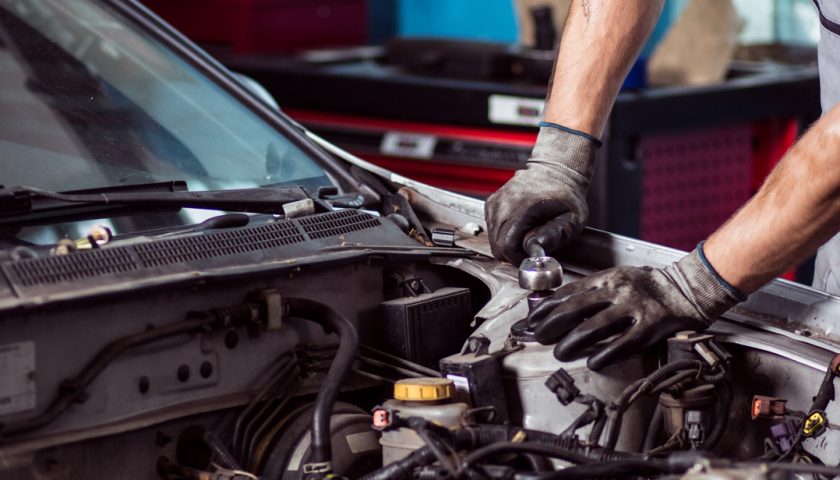The U.S. auto mechanics sector is a $64-billion industry. Within it operates more than 257 thousand car repair and service businesses.
After all, there are more than 222 million licensed drivers in the country who need such services on a regular basis. Without these experts, many of us who drive around in cars and light trucks would be at loss on what to do when our rides break down.
But with hundreds of thousands of them to choose from, how do you pick the right one? How can you make sure you work with an automotive mechanic who won’t rip you off?
That’s what we’ll share with you in this post. So, keep reading before you sign that dotted line!
Try Your DIY Skills First
First things first: Not all signs of car troubles require a trip to an automobile mechanic. There are several repair jobs you can do on your own, the easiest of which is a windshield wiper replacement. You only need to check your owner’s manual to find out the exact part number you need.
Say you have a Toyota. You can look up the replacement part info from this library of Toyota service repair manuals. Once you have the new wipers, it’ll take you 10, 15 minutes to replace your old ones.
There are many other easy DIY auto fixes you can give a go before taking your ride to a mechanic. Of course, if you don’t have time or are still wary of attempting repairs on your own, then it’s best you start searching for an auto service expert.
Know What to Look for in a Trustworthy Automotive Mechanic
First, allow us to shed some light on what you should look for to know you’re dealing with a mechanic you can trust. Here are some of the most important ones:
Communication Skills that Put You at Ease
A reliable auto technician listens to what you have to say. They don’t spout off technical jargon right away. They won’t tell you then and there (after only hearing a few sentences from you) that you need new fuel injectors or an alternator replacement.
In other words, they’ll hear you out first and foremost, then ask pertinent questions later. They’ll put you at ease with their professional (yet friendly) customer service skills. No matter how small or big the job is, they’ll show interest and genuine concern.
They Take Pride in Their Abbreviations
Trustworthy mechanics have affiliations they take pride in, so they display proof of these connections. When dealing with prospects, look for certificates bearing the logo of the Automotive Service Excellence (ASE), America Automobile Association (AAA), or the National Institute for Automotive Service Excellence (NIASE).
Depending on where you live, auto technicians may also need a state license. So, be sure to check with your local and state government first.
They Have a Good Record
Trustworthy auto technicians have a reputation to protect. They strive hard to build long-lasting relationships with their clients, which is why they often have great reviews.
A good record also makes it more likely for customers to stick with them throughout the life of a car, which now averages 11.4 years.
This also works wonders for you, since finding a trustworthy mechanic means assurance you’ll receive great service, especially during emergencies.
Investment in the Tools of the Trade
Granted, basic car repairs and maintenance only require manual tools, such as wrenches, jacks, etc. Reliable technicians have all these, but what separates them from a bad mechanic is their investment in the latest repair/service technology.
This said, avoid working with a mechanic if you see don’t equipment like scanners, engine analyzers, and other diagnostic tools.
They Educate Their Clients
With such a tight competition, reliable automotive technicians know they need to go beyond to establish great relationships with customers. That’s why they’re not afraid of sharing insider tips with their clients. They’ll give you advice on say, how and when to rotate your tires.
You want to get the most bang out of your buck, right? So, if you find someone willing to tell you how to cut your car ownership costs down, that’s a sign you’re in good, albeit greasy hands.
Signs Telling You to Move to Your Next Prospect
How do you tell a great mechanic from a bad one? There are some hints that’ll tell you to leave the shop and never look back, and here are a few of them:
Fluid Flushes
Yes, you need a coolant or power steering flush at some point, but not after only 30,000 miles. Some makes and models don’t need flushing of these fluids within the first 100,000 miles. To be sure, check your car service and repair manual first.
If this is the first thing you hear from a mechanic, and you know you haven’t driven a hundred thousand miles, feel free to leave.
Work Orders without Estimates
A mechanic estimate should always appear on a signed work order. In fact, you should never sign a document that doesn’t discuss the jobs in detail.
Also, reliable mechanics would first offer you with several options and tell you how much each would likely cost.
Cluttered and Messy Garages
Okay, auto repair and maintenance shops aren’t as sparkling clean as offices. But this doesn’t mean it’s okay for them to leave their garages messy.
You don’t want to deal with a shop that has clutter and litter everywhere, do you? That puts your car in danger (think falling debris), not to mention a sign of a shop’s unprofessionalism.
Avoid More Car Headaches by Dealing Only with a Pro Mechanic
An automotive mechanic who you can trust will treat your ride like his/her own. He/she will have a massive contribution to your car reaching that 200,000-mile mark. So, make sure you keep these tips on how to deal with car technicians in mind.
For more greasy (sorry) tidbits about automobile maintenance, feel free to browse our extensive library of tips and tricks.

